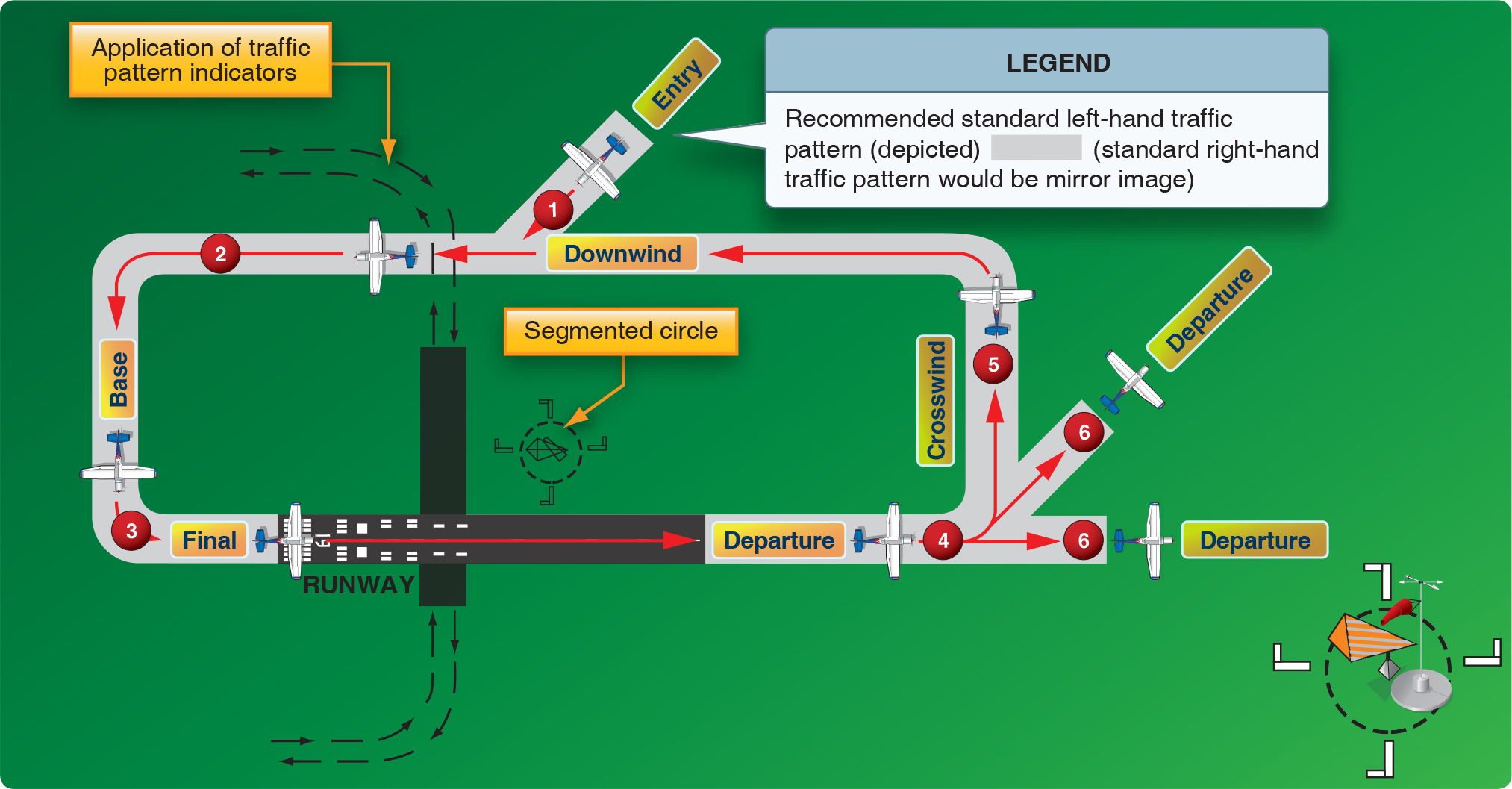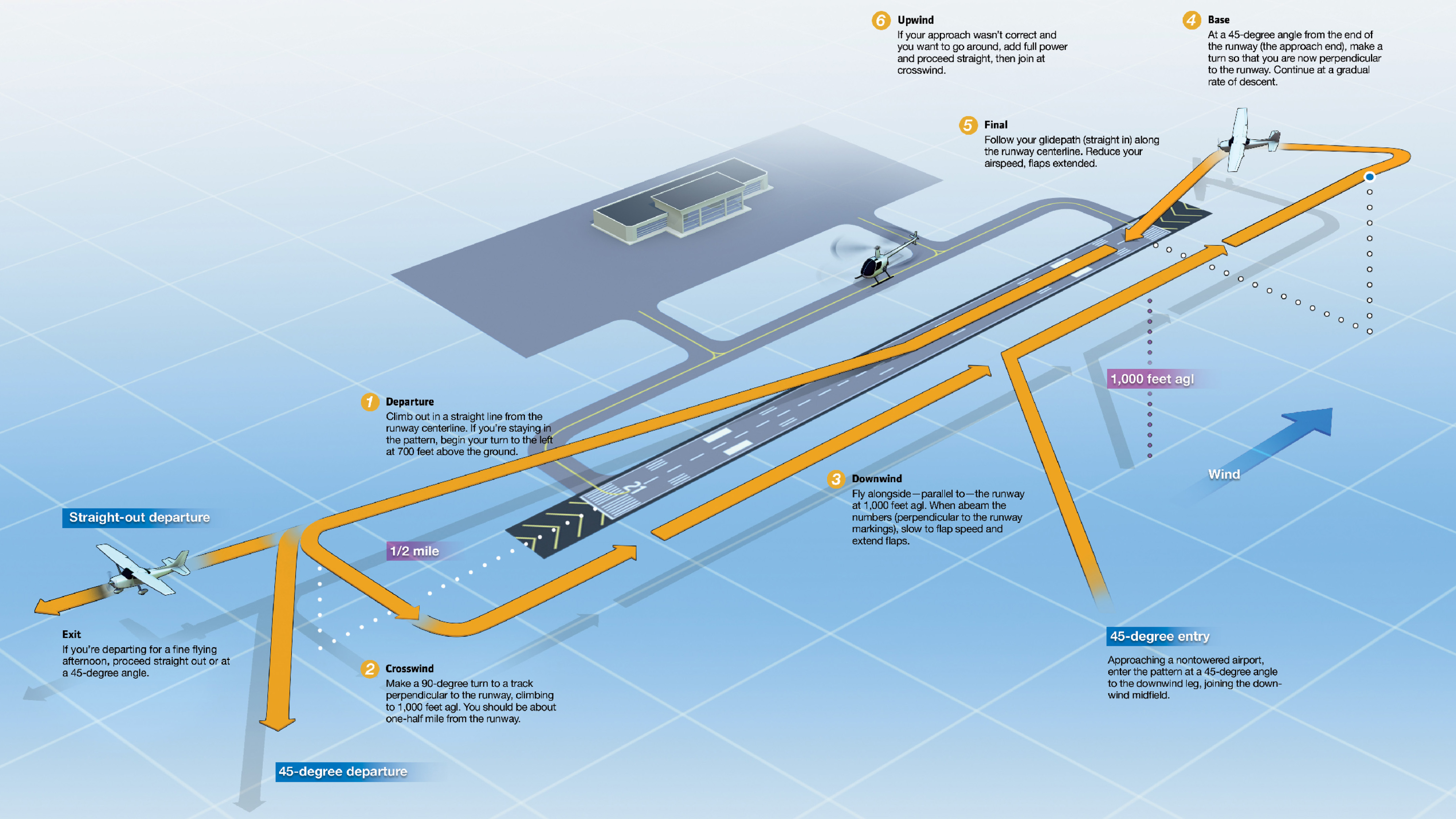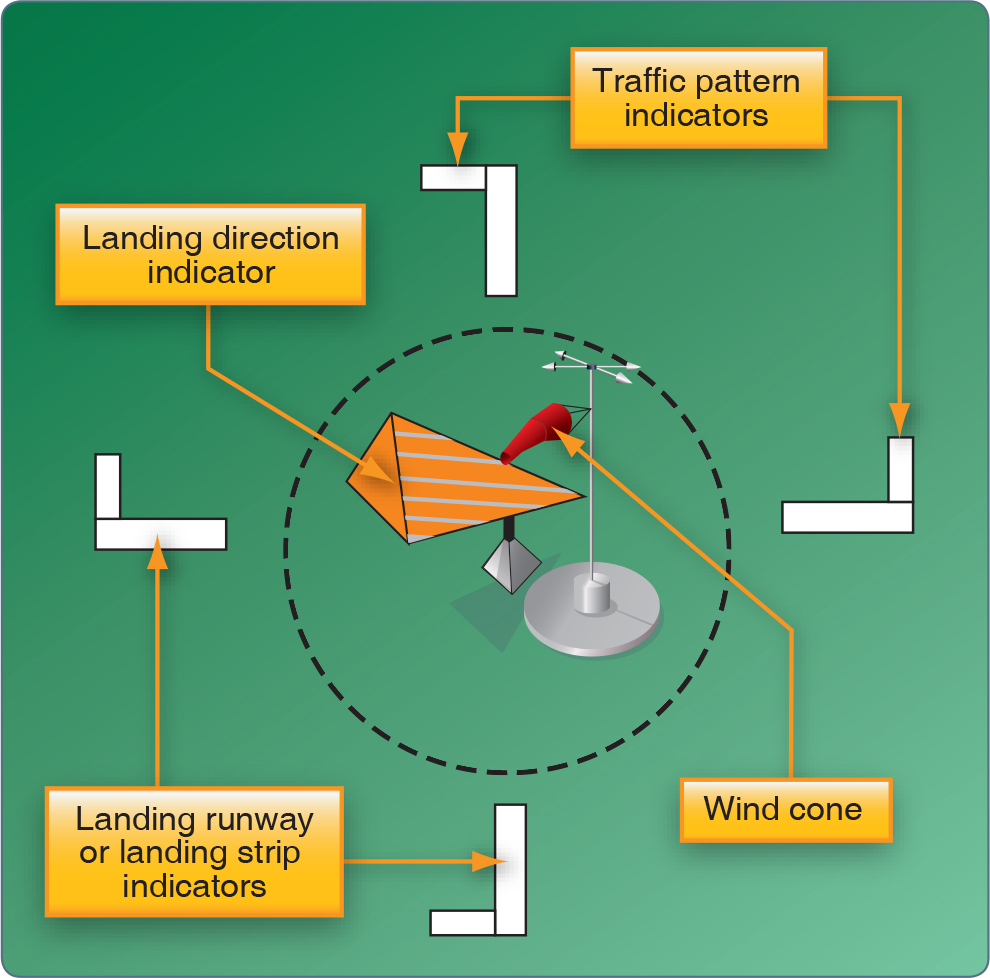Aviation Traffic Pattern
Aviation Traffic Pattern - Web traffic pattern info. Web when i was a student, i learned the golden rule of standard traffic pattern entries: We aren’t flying airliners, so why fly an airliner traffic pattern? Web traffic pattern procedures develop the ability to stay safely and efficiently arrive at an uncontrolled airport, or after arrival, utilize the traffic pattern. Web the aircraft were flying in the pattern of the fun fly zone (ffz), which is located in the ultralight area. (1,000′ agl is recommended pattern altitude unless otherwise established.) [figure 3] Web airport traffic patterns ensure that air traffic moves into and out of an airport safely. It’s the path you will fly when leaving and returning to the airport, specifically the runway. Web in this video we look at the airport traffic pattern, its general characteristics, rules of thumb to fly it in a standard way, the recommended techniques to enter and exit the pattern, among. The exact nature of each airport traffic pattern is dependent on the runway in use, wind conditions, obstructions, and other factors. Meanwhile, flights that were in the air already were allowed to continue. Standardized traffic pattern for all types of ffz operations with exception of the. Web traffic pattern operations—single runway. At an airport, the pattern (or circuit) is a standard path for coordinating air traffic. Web the recommended entry position to an airport traffic pattern is to enter 45° at the midpoint of the downwind leg at traffic pattern altitude. Web knowing the traffic pattern, as well as how to correct for local adjustments to it, helps all of the pilots using it remain safe and organized, even if the airport is not outfitted with an air traffic control tower, or the tower is not staffed. Web tune in atis. Business insider verified the map using flightradar24's playback feature. Web airport traffic patterns ensure that air traffic moves into and out of an airport safely. Know where to look for details on the pattern. At an airport, the pattern (or circuit) is a standard path for coordinating air traffic. Find further pattern information in the chart supplement, including traffic pattern altitude. Note the atis information identification letter—for example, hotel—because it changes with each update. While the airport traffic pattern is standardized, every traffic pattern is established based on conditions specific to each airport,. Web. Web traffic patterns provide procedures for takeoffs, departures, arrivals, and landings. Far from the airport, tune the automated terminal information system (atis) frequency to learn your destination airport’s current weather and runway (s) in use. Standardized traffic pattern for all types of ffz operations with exception of the. Before we get into the details, let's start by taking a quick. At an airport, the pattern (or circuit) is a standard path for coordinating air traffic. Web when i was a student, i learned the golden rule of standard traffic pattern entries: Far from the airport, tune the automated terminal information system (atis) frequency to learn your destination airport’s current weather and runway (s) in use. After air force one landed,. (1,000′ agl is recommended pattern altitude unless otherwise established.) [figure 3] We aren’t flying airliners, so why fly an airliner traffic pattern? Pilots must adhere to these established patterns and rules to maintain order, prevent hazardous events, and enhance the overall safety of air travel. Indeed, the demand for air transport is. The traffic pattern is comprised of several components. The technique that’s worked best for me. The exact nature of each airport traffic pattern is dependent on the runway in use, wind conditions (which determine the runway in use), obstructions, and other factors. Web in this video we look at the airport traffic pattern, its general characteristics, rules of thumb to fly it in a standard way, the recommended. Web aeronautical charts and related publications. Enter pattern in level flight, abeam the midpoint of the runway, at pattern altitude. For a typical trainer such as a cessna 172, a “standard” traffic pattern is flown to the left and at 1,000 feet above ground level (agl). It is recommended that aircraft enter the airport traffic pattern at one of the. But as the sun rises and time reaches utc 12:00. Web traffic patterns provide procedures for takeoffs, departures, arrivals, and landings. Web traffic pattern operations—single runway. Web aeronautical charts and related publications. Eastern time on thursday — and shows air traffic for delta air lines, united airlines, and american airlines flights slowing down late into the night. This is the best and safest entry, because it enables you to see other pilots in the pattern and enables those in the pattern to see you. The traffic pattern is comprised of several components which standardized flow of aircraft, at a. Web it is important to fly standard traffic pattern procedures to ensure the safe and orderly flow of. Note the atis information identification letter—for example, hotel—because it changes with each update. While the airport traffic pattern is standardized, every traffic pattern is established based on conditions specific to each airport,. If there’s one thing that winds me up when in the traffic pattern, it’s following that cessna 150 flying an extended downwind before turning a 4 mile final,. Find further pattern information in the chart supplement, including traffic pattern altitude. Web pilots must learn and understand proper air traffic rules, procedures, and traffic pattern layouts used at various airports. Meanwhile, flights that were in the air already were allowed to continue. Web the faa has released updated guidance on how we pilots are expected to fly traffic patterns,. Business insider verified the map using flightradar24's playback feature. The technique that’s worked best for me. We aren’t flying airliners, so why fly an airliner traffic pattern? If there’s one thing that winds me up when in the traffic pattern, it’s following that cessna 150 flying an extended downwind before turning a 4 mile final, flying at 60 knots the whole way. Pilots must adhere to these established patterns and rules to maintain order, prevent hazardous events, and enhance the overall safety of air travel. For a typical trainer such as a cessna 172, a “standard” traffic pattern is flown to the left and at 1,000 feet above ground level (agl). Web knowing the traffic pattern, as well as how to correct for local adjustments to it, helps all of the pilots using it remain safe and organized, even if the airport is not outfitted with an air traffic control tower, or the tower is not staffed. Most patterns are flown in a rectangle. Pilots in the training phase often study the traffic pattern. Web tune in atis. Web the map appears to start around utc 00:00 on friday — or 8 p.m. Indeed, the demand for air transport is. Web the airport traffic pattern is a means of safely directing aircraft in and out of an aerodrome. The traffic pattern is comprised of several components which standardized flow of aircraft, at a. Web an airfield traffic pattern is a standard path followed by aircraft when taking off or landing while maintaining visual contact with the airfield. Note the atis information identification letter—for example, hotel—because it changes with each update.Airport Operations
Important Guide to Entering the Traffic Pattern Safely! Lets Fly VFR
Everything You Should Know About the Airport Traffic Pattern
Traffic Pattern Operations
How to Fly a General Aviation Traffic Pattern
Procedures and Airport Operations Traffic Patterns Learn to Fly Blog
Technique The traffic pattern AOPA
How to fly a standard airport traffic pattern Flight Training Central
Procedures and Airport Operations Traffic Patterns Learn to Fly Blog
Airport Traffic Patterns How Airplanes Avoid MidAir Collisions
After Air Force One Landed, A Group Of Local Officials.
Web The Recommended Entry Position To An Airport Traffic Pattern Is To Enter 45° At The Midpoint Of The Downwind Leg At Traffic Pattern Altitude.
This Is The Best And Safest Entry, Because It Enables You To See Other Pilots In The Pattern And Enables Those In The Pattern To See You.
Find Further Pattern Information In The Chart Supplement, Including Traffic Pattern Altitude.
Related Post:
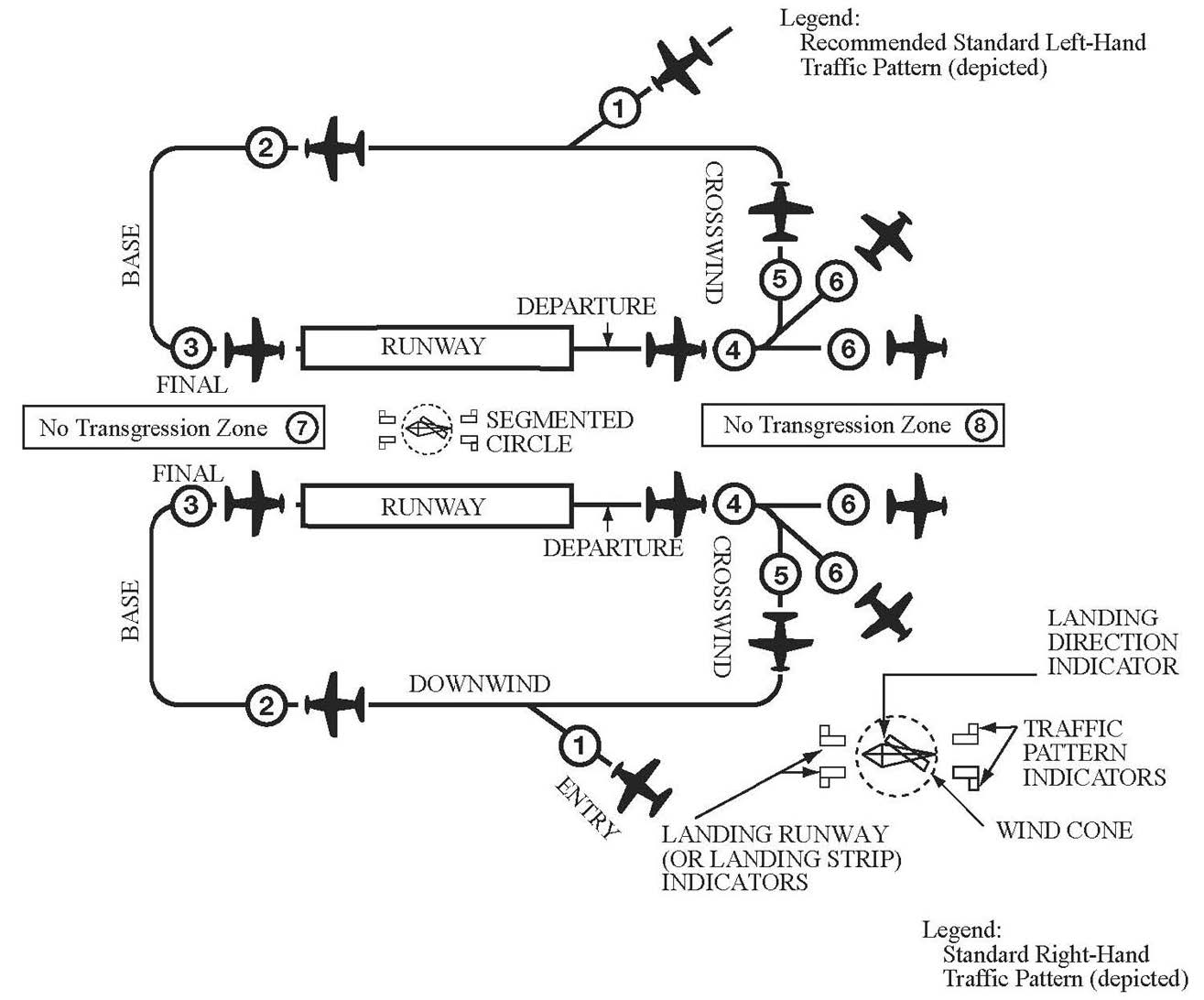
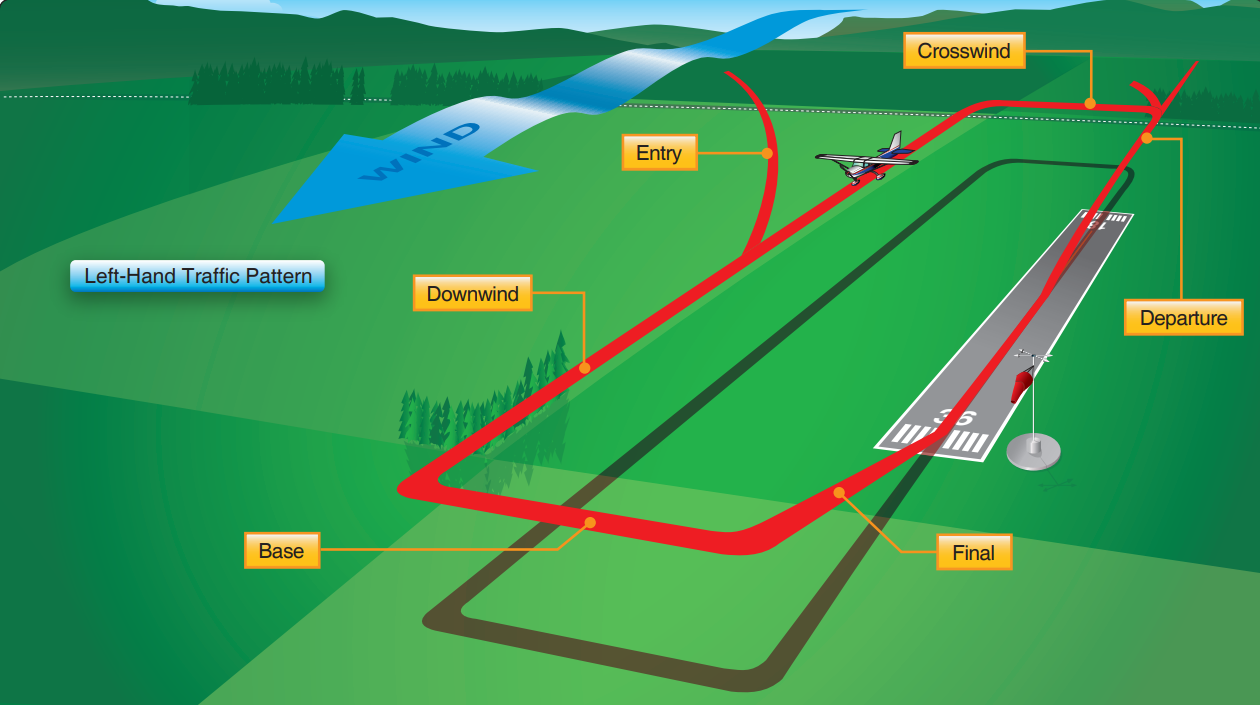
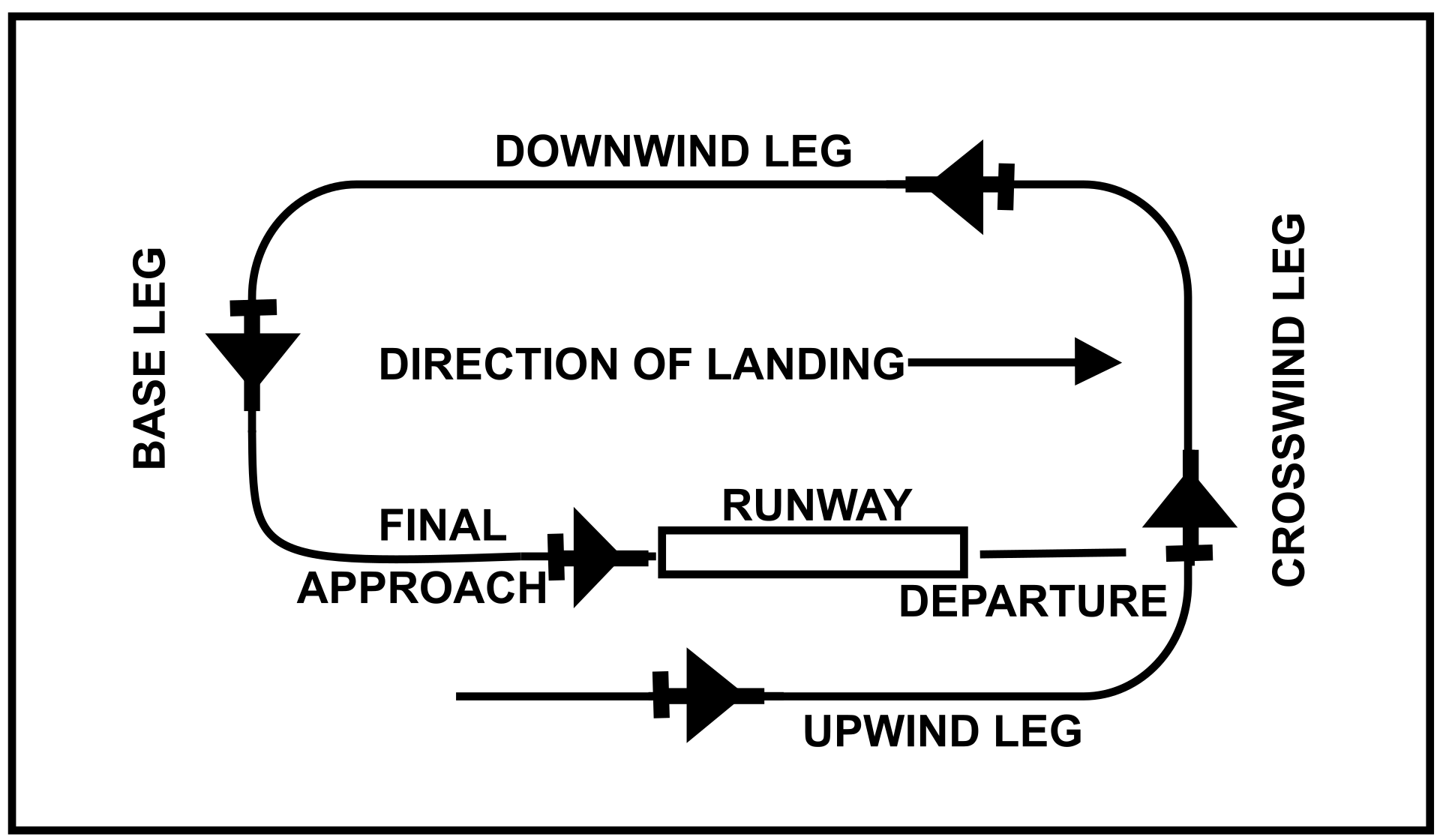
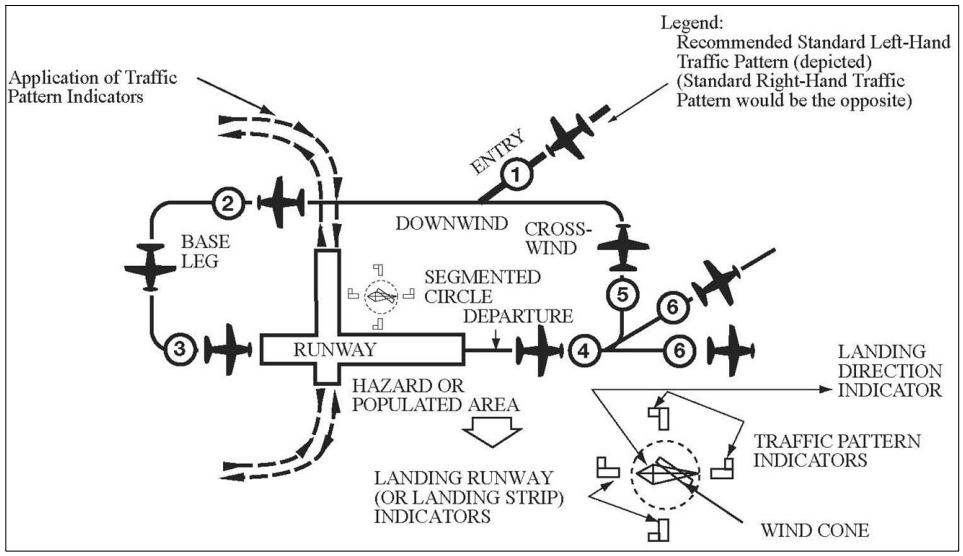
/Traffic_patterns_depicted_in_FAA-H-8083-25-56a058ce3df78cafdaa1229b.jpg)
